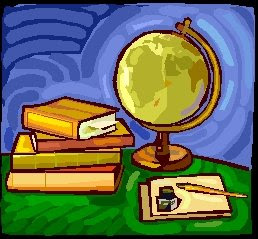1) GOD & THE UNIVERSE
What power is in control of the universe? Was it created? Is it governed by chance, fate, human choice, a higher power, providence, gods/God...?
2) HUMANITY & IDENTITY
What is the nature of a human being? Are we material, spiritual, or dual? How much power do we have over our own universe? Are we innocent or guilty?
3) CONFLICT & SUFFERING
What is the nature and starting point of human conflict? Why is the universe flawed? What are the flaws?
4) HOPE & REDEMPTION
What is the answer to the human struggle? How are we doing? Where do we find our hope for tomorrow?
5) VALUES
How does one find value in life? What personal, relational, and public values can be identified for living well? What is good and what is bad? What do we prize and what do we fear?
6) TRUTH & REALITY
What is true? What is real? Is there absolute truth? How do you know? Can you articulate it? Are your words reliable?
Christian: God as sovereign creator and trinity; humans made in his image but fallen into sin; suffering arising from man's attempt to be his own god (Lucifer's lie, the Fall); all hope is found in the death and resurrection of Jesus; values of peace, joy, hope, faith, and the "greatest of these is love"; truth revealed in creation and through God's inspired Word.
Secular Humanist: No God, material universe; humans are highly evolved animals; conflict arises in quest to survive; hope in being "fit" to survive and progress/evolve; values of survival for the individual and the herd; truth is material and scientifically verifiable.
Cosmic Humanist: God, if It exists, is a cosmic force; the universe and its inhabitants are spiritual,interconnected and evolving; suffering comes from disconnection and stagnance; hope is in spiritual awareness, community, progress; values of open-mindedness, confidence, charity; spiritual truth looks different to different people and its expression is subjective.
Muslim: God as One soverign creator (no trinity); humans are created for submission; conflict arises within the absence of submission; hope is in the grace of Allah, for those who submit; values identified in the Five Pillars, including obedience and charity; truth revealed in creation and through Muhammed in the Koran.
Pre-Modern: Spirits and gods control the world; humans intermingle with gods and spirits; suffering comes from displeasing the gods/spirits; hope is in earthly glory and sometimes glory in the afterlife; values are in obedience to tradition and ritual; truth is revealed by the gods/spirits.
Post-Modern: Who knows if there's a God? Humans exist; suffering comes from not knowing who you are or what to believe; hope can come in making a leap to identity and faith, or just giving up and laughing at it all; value anything that makes you feel better; truth isn't knowable or expressable, and words are stabs in the dark.
(Modern = humanist)
Friday, August 03, 2007
Subscribe to:
Comments (Atom)
